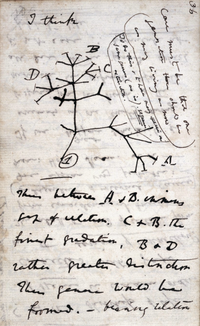
Determining the markers of a preference for imaginary worlds fiction calls for comparisons across kinds of fiction readers and forms of exploration
Sign Up to like & getrecommendations! Published in 2022 at "Behavioral and Brain Sciences"
DOI: 10.1017/s0140525x21002065
Abstract: Abstract The authors do not compare readers who prefer imaginary world fiction to readers with other reading preferences, failing to rule out the hypothesis that their findings apply to all readers. The authors also do… read more here.
Keywords: markers preference; determining markers; imaginary worlds; preference imaginary ... See more keywords

Why imaginary worlds? The role of self-exploration within online gaming worlds
Sign Up to like & getrecommendations! Published in 2022 at "Behavioral and Brain Sciences"
DOI: 10.1017/s0140525x21002077
Abstract: Abstract Dubourg and Baumard posited that preferences for exploration are the key to the popularity in imaginary worlds. This commentary argues that other forms of exploration may also account for the success and appeal of… read more here.
Keywords: self exploration; role self; worlds role; imaginary worlds ... See more keywords

Influences on the development of imaginary worlds
Sign Up to like & getrecommendations! Published in 2022 at "Behavioral and Brain Sciences"
DOI: 10.1017/s0140525x21002090
Abstract: Abstract Dubourg and Baumard's paper takes a different, and fruitful, approach to the study of imaginary worlds than what is usually found in Media Studies, but omits certain circumstances and influences that shaped their history;… read more here.
Keywords: imaginary worlds; development imaginary; influences development;

It's not fiction if you believe it: How imaginary worlds are derived from imaginary realities
Sign Up to like & getrecommendations! Published in 2022 at "Behavioral and Brain Sciences"
DOI: 10.1017/s0140525x21002120
Abstract: Abstract Imaginary worlds are not a consequence of humans' exploratory tendencies as argued in the target article but a recent spinoff of a strong human tendency to create imaginary realities, that is, versions of how… read more here.
Keywords: believe imaginary; worlds derived; imaginary worlds; imaginary realities ... See more keywords

Using imaginary worlds for real social benefits
Sign Up to like & getrecommendations! Published in 2022 at "Behavioral and Brain Sciences"
DOI: 10.1017/s0140525x21002181
Abstract: Abstract We argue that imaginary worlds gain much of their appeal because they fulfill the fundamental need of human beings to feel connected to other humans. Immersion into story worlds provides a sense of social… read more here.
Keywords: social benefits; real social; worlds real; using imaginary ... See more keywords

Am I present in imaginary worlds? Intentions, actions, and flow in mediated experiences and fiction
Sign Up to like & getrecommendations! Published in 2022 at "Behavioral and Brain Sciences"
DOI: 10.1017/s0140525x2100220x
Abstract: Abstract We support the idea of applying cultural evolution theory to the study of storytelling, and fiction in particular. However, we suggest that a more plausible link between real and imaginary worlds is the feeling… read more here.
Keywords: intentions actions; present imaginary; imaginary worlds; actions flow ... See more keywords

Autism and the preference for imaginary worlds
Sign Up to like & getrecommendations! Published in 2022 at "Behavioral and Brain Sciences"
DOI: 10.1017/s0140525x21002211
Abstract: Abstract Dubourg and Baumard mention a potential role for the human drive to systemise as a factor motivating interest in imaginary worlds. Given that hyperexpression of this trait has been linked with autism (Baron-Cohen, 2002,… read more here.
Keywords: autism; preference imaginary; imaginary worlds; autism preference ... See more keywords

The development of the imagination and imaginary worlds
Sign Up to like & getrecommendations! Published in 2022 at "Behavioral and Brain Sciences"
DOI: 10.1017/s0140525x21002272
Abstract: Abstract Evidence from developmental psychology on children's imagination is currently too limited to support Dubourg and Baumard's proposal and, in several respects, it is inconsistent with their proposal. Although children have impressive imaginative powers, we… read more here.
Keywords: imaginary worlds; imagination imaginary; psychology; imagination ... See more keywords

The familiar appeal of imaginary worlds
Sign Up to like & getrecommendations! Published in 2022 at "Behavioral and Brain Sciences"
DOI: 10.1017/s0140525x21002338
Abstract: Abstract Imaginary worlds may satisfy our need to explore, but it's an open question what we are searching for. Research on imagination suggests that if we are searching for something extraordinary – something that violates… read more here.
Keywords: familiar appeal; appeal imaginary; imaginary worlds;

Young children are not driven to explore imaginary worlds
Sign Up to like & getrecommendations! Published in 2022 at "Behavioral and Brain Sciences"
DOI: 10.1017/s0140525x2100234x
Abstract: Abstract We address Dubourg and Baumard's claim that imaginary worlds are most appealing early in the lifespan when the exploratory drive is highest. Preschool-age children prefer fictions set in the real world, and fantastical information… read more here.
Keywords: driven explore; young children; imaginary worlds; explore imaginary ... See more keywords

Imaginary worlds through the evolutionary lens: Ultimate functions, proximate mechanisms, cultural distribution
Sign Up to like & getrecommendations! Published in 2022 at "Behavioral and Brain Sciences"
DOI: 10.1017/s0140525x22000048
Abstract: Abstract We received several commentaries both challenging and supporting our hypothesis. We thank the commentators for their thoughtful contributions, bringing together alternative hypotheses, complementary explanations, and appropriate corrections to our model. Here, we explain further… read more here.
Keywords: evolutionary lens; lens ultimate; imaginary worlds; distribution ... See more keywords